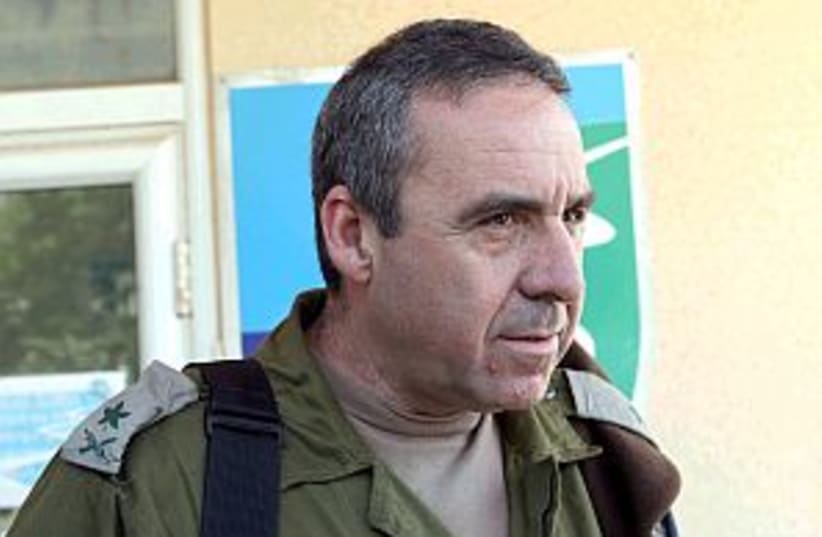Meanwhile Tuesday, the IDF geared up for its largest planned ground incursion into Lebanon since war erupted, with Halutz preparing to present the security cabinet with a plan to send tens of thousands of troops north to the Litani River and beyond - to places like Nabatiya - from which Hizbullah fires most of its short- and medium-range rockets. Thousands of troops were heading north on Tuesday.
According to the operational plan, which the security cabinet is expected to approve Wednesday morning, IDF divisions will sweep into southern Lebanon and will make their way to the Litani - some 30 kilometers north of the border - and beyond. According to Military Intelligence sources, the IDF has no choice but to conquer all of southern Lebanon if it wants to stop the Katyushas. More than 150 rockets fell Tuesday, injuring two and causing widespread damage.
Defense Minister Amir Peretz said in closed-door meetings with senior officers that he was determined to turn Hizbullah's Katyusha rockets into tactical threats, rather than the strategic threats they have become, by distancing them from Israel's border.
Senior defense officials said that, notwithstanding "miraculous" developments on the diplomatic front, the IDF would begin moving its troops to the Litani a few hours after it got the green light from the security cabinet. On Tuesday, Adam and other high-ranking officers visited the brigade-level command posts and approved operational plans for each unit, which now knows which village it will be taking if the operation - the largest and deepest incursion into Lebanon since 1982 - is approved.
The point of the incursion, senior officers said, was twofold: to push Hizbullah and its rockets out of range of Israel and to clear southern Lebanon of a Hizbullah presence, an achievement that would make it easier when trying to convince a multinational force to deploy in the area. The working assumption in the IDF is that countries would be reluctant to send troops to southern Lebanon if Hizbullah was still present.
Meanwhile, two IDF reservists were killed and two others wounded - one moderately and one lightly - in clashes in Labounah in the western sector of southern Lebanon. One of the dead soldiers was identified as Capt. (res.) Gilad Balahsin, 28, of Karmiel. Overnight Monday, St.-Sgt. Phillip Musko, 21, from Ma'aleh Adumim was killed and five other soldiers were lightly wounded when Hizbullah guerrillas fired anti-tank rockets at an armored vehicle during clashes in Dbil, west of Bint Jbail. A member of the Armored Corps was also seriously wounded in the intense fighting in Bint Jbail.
Intense fighting continued Tuesday night and the IDF was reported to have sustained additional casualties. Troops have killed 30 Hizbullah gunmen in the western sector since Monday night. They also destroyed 12 rocket launchers. The IAF, meanwhile, hit more than 90 targets throughout the day, including 42 Hizbullah structures, 30 access routes and six rocket launchers.

